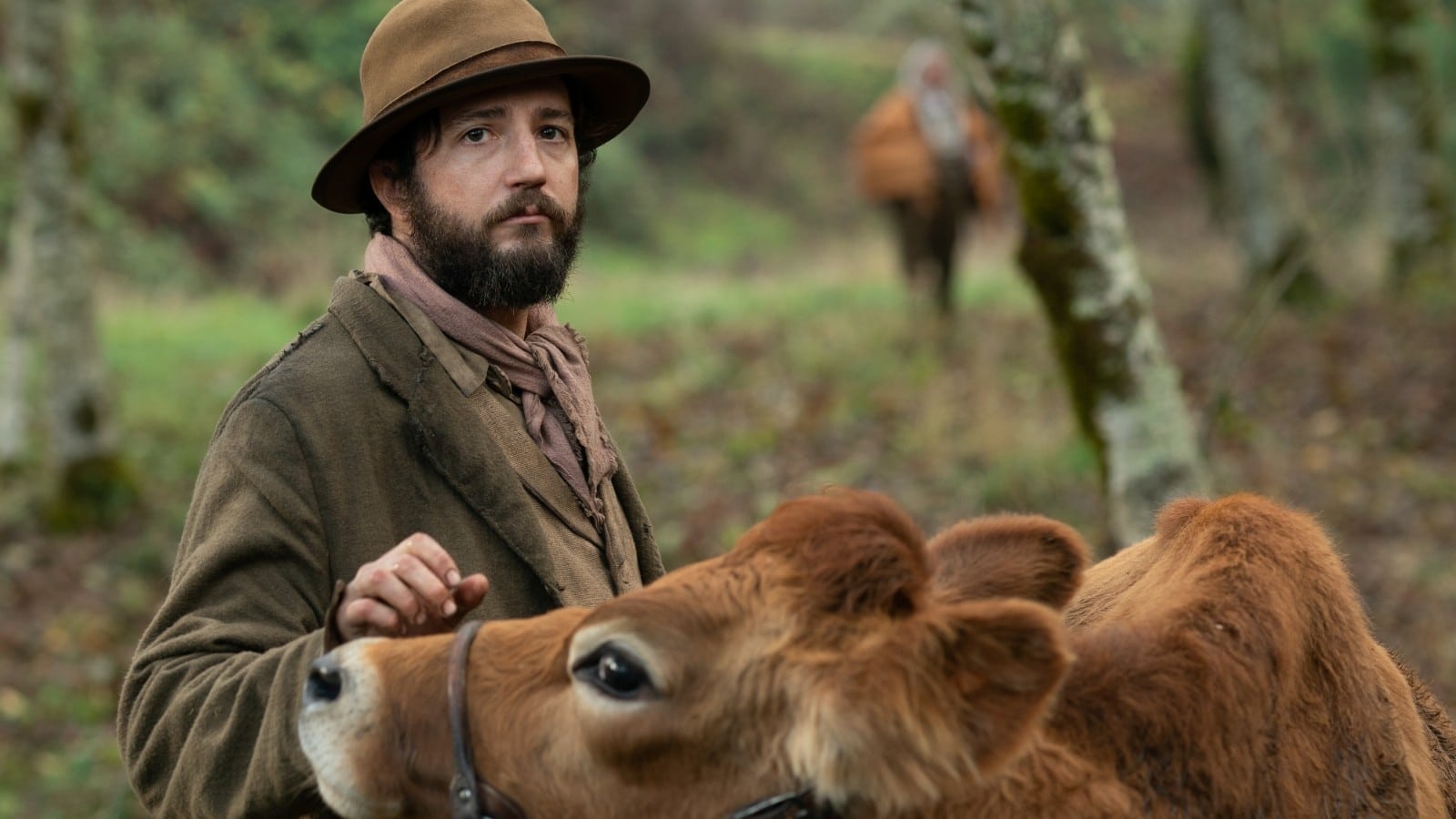First Cow
Feb 28, 2022 - 19:30 - Corn Exchange
- Director: Kelly Reichardt
- Year: 2019
- Country: USA
- Run Time: 124 mins
- Ratings
- A: 12
- B: 21
- C: 24
- D: 12
- E: 1
- Overall: 61

Kelly Reichardt gives us a terrifically tough and sinewy tale of the old west, shaped by the brutally implacable market forces of capitalism. She and her regular screenwriting collaborator Jonathan Raymond have adapted Raymond’s own 2004 novel The Half-Life, evidently pruning some of the epic adventures in the original and bringing it down to a tensely immediate situation. She and Raymond tell their story with force and skill and the movie is shot with beautiful simplicity. There’s a muscular authority in its plainness and its calm, unshowy evocation of the American landscape. A prelude in the present day shows a young woman discovering two human skeletons shallowly buried in Oregon woodland. What is the story here? Reichardt takes us back to the 1820s where “Cookie” Figowitz (John Magaro) is a slippery adventurer who has been hired as a cook in a trapping party but has proved utterly incompetent – at least as far as his aggressive and hungry fellow trappers are concerned. So he splits from them and finds himself befriending an itinerant Chinese worker called King Lu (Orion Lee), and for a while, the pair seem no more than a couple of hobos, finding common cause in their own loneliness. They dream of getting rich as entrepreneurs - and they are not stupid or lazy. But of course any new business needs capital. And how to get it? Why, with that certain special something that is the invisible foundation stone of all great fortunes: a crime. Lu points out that a cow has arrived in the territory: the first cow, and as such the object of exotic fascination. It belongs to the chief factor, an effete and absurd Englishman (Toby Jones), and the pair hatch a bold plan: to creep into the factor’s meadow at the dead of night, milk this cow and use the precious liquid to make “oily cakes”. These are rich and delicious buttermilk scones that instantly become a huge and lucrative success at the local market, especially with the idiotic factor himself who greedily buys and gobbles these treats and can’t believe something so tasty exists outside London. (As Lu shrewdly says: “Some people can’t imagine themselves being stolen from.”) But then the factor invites the pair to provide a super-special cake for a tea-party he is hosting for a visiting army officer (Scott Shepherd). It is a tale of danger and hubris, but without hubris, no great fortune can be made. The ruling class from whose naivety the pair hope to scavenge their riches are arrogant and high-handed with both the immigrant labour and the native Americans with whom the factor has a supercilious conversation about hunting beavers. Like Lu and Figowitz, this man is concerned with market forces. When the officer tells him he has had to give a beating of 20 strokes of the belt to a mutineer, the factor says that is too lenient, and when the officer says that more strokes would render him unfit for work, the factor counters that this would be offset by the increased work rate from the other (terrified) men. (In a similar spirit, Lu and Figowitz finely calculate their prices for their cakes.) But they are always liable to be robbed or informed upon or arrested and our two heroes must also calculate the moment at which they will cut and run. It is a tremendously engaging story that does something very few movies do: mention specific sums of money, so we realise exactly what risks are being taken. Something very palpable is at stake, the jeopardy is real and it’s a question of survival.